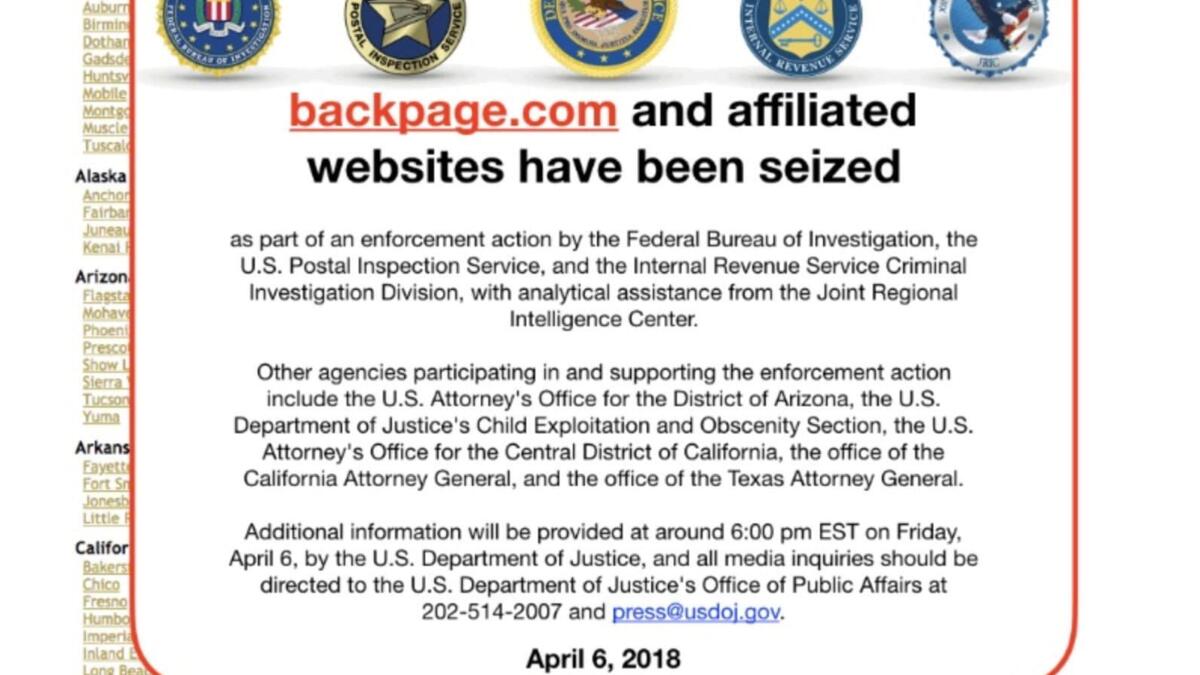Jump To
The website Backpage may be gone, but its infamy lives on.
The community-driven set of online classified ads has been at the center of some of the most controversial legal battles in internet history. Many people have heard the name before and are somewhat familiar with the maelstrom surrounding it.
But do they have the full picture?
We will briefly cover what the page was, why it was brought down, and the fallout that is still going on to this day.
Back(page) to the Future
While attending Arizona State University, James Larkin and Michael Lacey started an alternative newspaper based on Libertarian ideals called The New Times in 1970.
In the back pages was a large collection of classified ads sent in by readers. These ads ranged from selling a car to job postings to people looking for love. Included were ads for strippers and phone-sex hotlines.
For those too young to remember, phone-sex hotlines were where you paid by the minute to have a sexy voice talk dirty to you. Think of it as analog private cam shows.
Over the years, the paper grew in popularity and garnered enough money for Larkin and Lacey to buy the respected alt-periodical The Village Voice in 2005. The media company changed its name from Phoenix New Times to Village Voice Media shortly thereafter.
In 2004, Backpage.com was created as a competitor to Craigslist. Like Craigslist, before 2010, there was a section dedicated to adult services. These posts included “escort” services, where sex workers could find and verify clients from the safety of their homes instead of on the streets.
After pressure from state attorneys general, Craigslist shut down its adult section in 2010. This gave a major bump to Backpage, where sex workers flocked to post ads for their services.
Things were looking up for Backpage as its user base skyrocketed, and the revenue poured in.
The good times would not last long.
The End is Nigh For Backpage
Almost immediately after the boost in users on Backpage, a lawsuit was filed against Village Voice Media in 2010 by an anonymous woman who claimed she was trafficked at age 14 via posts on Backpage.
The case was dismissed due to section 230 of the Communications Decency Act, which removed liability from websites for user posts.
Shortly after the suit was dismissed, VVM hired experts to help combat the use of the site to facilitate sex trafficking, especially child trafficking. Internal Justice Department memos from 2012 and 2013 cited Backpage’s cooperation as an excellent resource for finding and arresting monsters who were coercing children and adults into sex work.
This would not help Backpage, as a movement was growing to conflate trafficking and consensual sex work.
Yes, child trafficking is a pervasive and stomach-turning problem that needs to be stopped, but this movement used poorly run studies and celebrities like Ashton Kutcher to create a moral panic that seemed more interested in consensual prostitution than child safety.
When Craigslist became the focus of outrage, the site dropped its Adult sections. When Backpage was next on the chopping block, they refused to back down based on Section 230 and the First Amendment.
Even with Backpage’s cooperation with law enforcement and the National Center for Missing and Exploited Children, the site’s founders were hit with lawsuits and investigations. A major leader in these investigations was current Vice President Kamala Harris, who was California’s Attorney General at the time.
In 2016, Harris and Texas Attorney General Ken Paxton confirmed the Dallas head offices of Backpage were raided, and then-CEO Carl Ferrer was arrested under felony charges of pimping, pimping of minors, money laundering, and conspiracy.
Lacey and Larkin were eventually brought before a Congressional investigative committee in early 2017. Just before the hearing, Backpage censored the site’s Adult section with a pithy explanation of the government unconstitutionally forcing its hands.
In 2018, Lacey and Larkin were arrested and charged with facilitating prostitution, money laundering, and conspiracy. They were eventually let out on bail, despite Harris’s protest.
At the same time, the site was seized by the FBI, which was the end of Backpage.
The End?
While the above is a very broad overview of events, and the legal battles are still ongoing, that is how Backpage met its demise.
Despite Backpage being relegated to the annals of internet history, there are numerous websites and online communities where consenting adult sex workers continue to find clients and pay their bills.
If you are looking for alternative sites like Backpage, check out our list of Backpage alternatives.





Leave a Reply Cancel reply